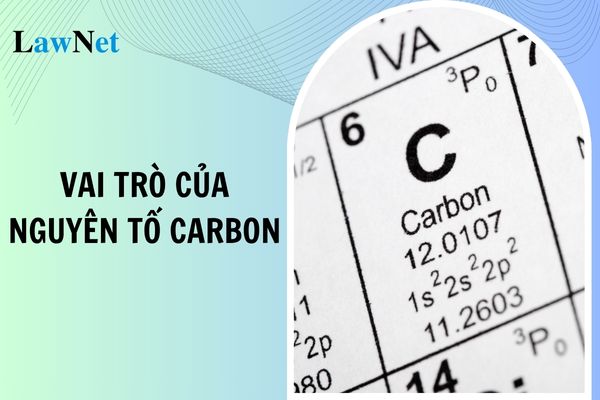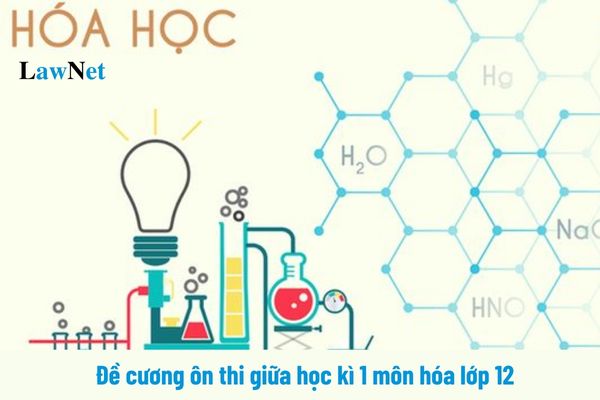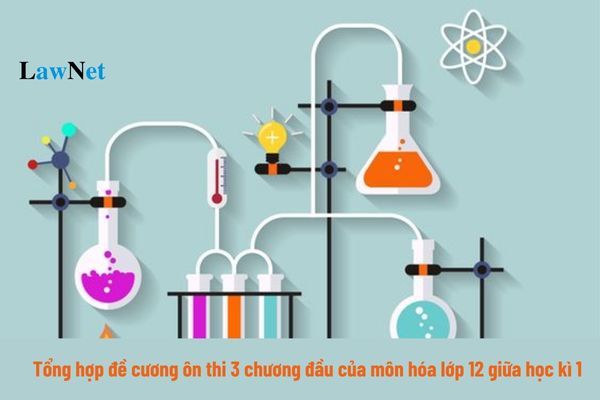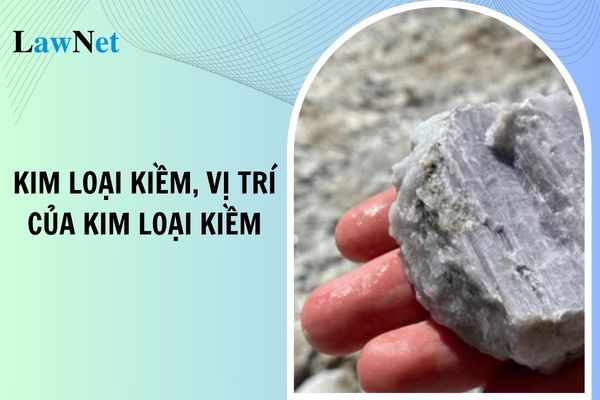What is the role of the carbon element in cells? What are required content in the section of chemical composition of cells according to grade 10 Biology curriculum in Vietnam?
What is the role of the carbon element in cells?
The Carbon element is fundamental and crucial in a cell. It plays a key role in the structure and function of important biological molecules. Some roles of carbon in a cell are as follows:
- Component of organic molecules: The Carbon element is the foundation of all organic compounds. It forms the backbone for large molecules such as proteins, carbohydrates, lipids, and nucleic acids (DNA and RNA).
- Formation of stable bonds: Carbon can form four covalent bonds with other atoms, which helps create stable and structurally diverse molecules.
- Carbon chain structure: Carbon chains can exist in long chains, rings, or branched forms, contributing to the richness and diversity of biological molecules.
- Participation in energy metabolism: Carbon is an important part of cellular respiration and photosynthesis. Carbon-containing compounds such as glucose are used to produce energy for the cell.
Note: The content is for reference only!

What is the role of the carbon element in cells? What are required content in the section of chemical composition of cells according to grade 10 Biology curriculum in Vietnam? (Image from the Internet)
What are required content in the section of chemical composition of cells according to grade 10 Biology curriculum in Vietnam?
Based on the Upper Secondary School Biology Program issued with Circular 32/2018/TT-BGDDT, the required content in the chemical composition of cells for grade 10 includes:
- Listing some main chemical elements present in a cell (C, H, O, N, S, P).
- Stating the role of trace and major elements in a cell.
- Stating the important role of the carbon element in a cell (carbon atom structure can bond with itself and various functional groups).
- Describing the molecular structure characteristics of water that define the physical, chemical, and biological properties of water, thereby defining the biological role of water in a cell.
- Stating the concept of biological molecules.
- Describing the constituent components (chemical elements and monomers) and the role of biological molecules in a cell: carbohydrates, lipids, proteins, nucleic acids.
- Analyzing the relationship between the structure and role of biological molecules.
- Stating some food sources that provide biological molecules for the body.
- Applying knowledge of the chemical composition of cells to explain phenomena and applications in practice (e.g., rational eating habits; explaining why pork and beef are both proteins but have different characteristics; explaining the role of DNA in determining blood lineage, crime tracking, etc.).
- Practicing determining (qualitatively) some chemical components present in a cell (proteins, lipids, etc.).
Is it possible to provide extra classes on grade 10 Biology at schools in Vietnam?
Based on Article 4 of the Regulation on extra teaching and learning issued with Circular 17/2012/TT-BGDDT:
Cases where extra teaching is not allowed
- No extra teaching for students already taught by the school for two sessions a day.
- No extra teaching for elementary school students, except for cases such as art, sports training, and life skill development.
- Higher education institutions, colleges, vocational schools, and vocational training centers not organizing extra teaching and learning contents according to the general education program.
- For teachers receiving salaries from the public service provider's salary fund:
a) Not allowed to organize extra teaching outside the school, but may participate in extra teaching outside the school;
b) Not allowed to teach outside the school to students they are teaching in regular classes without the permission of the head of the teacher's managing agency.
Grade 10 Biology is not listed among the prohibited cases for offering extra classes in the school. Therefore, the school is allowed to offer extra classes in biology, except in the following cases:
- Students who are already taught by the school for two sessions a day.
- Organizing extra teaching and learning outside the school.
- Teaching outside the school to students whom the teacher is teaching in regular classes without the permission of the head of the agency.





- What are the sample essays on sharing an experience with a family member for 6th-grade students in Vietnam? What elective subjects do 6th-grade students learn?
- Vietnam: What is Polymer? What is the grade at which the Chemistry curriculum covers Polymer?
- Vietnam: What are the sample social argumentative essays on artificial intelligence? What is the grade at which students initially write social argumentative essays?
- Vietnam: What are the sample discussions on students being late for school? What are the criteria for text corpus used in the 9th-grade Literature curriculum?
- Vietnam: When was the directive on national resistance given? What education level does 9th Grade fall under?
- Vietnam: What is the overview of industrial revolutions over periods in the 10th-grade History curriculum? What knowledge about industrial revolutions do 10th-grade students learn?
- What is the Plan for organizing professional training for English teachers in Ho Chi Minh City about?
- Vietnam: What are the sample outlines of a social argumentative essay on kindness for 9th-grade students? What are the kindness qualities required for 9th-grade students?
- Vietnam: What are the sample argumentative essays on respecting people's differences for 11th-grade students? What are the conditions for 11th-grade students to be eligible for grade advancement?
- Are students pursuing dance in Vietnam eligible for tuition reduction?

